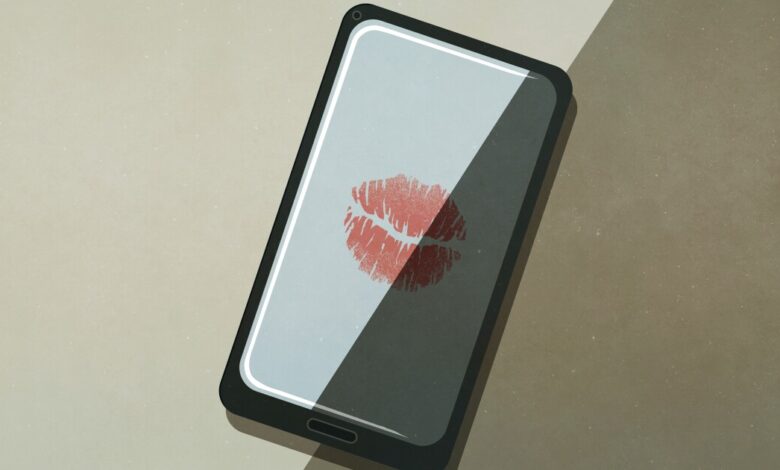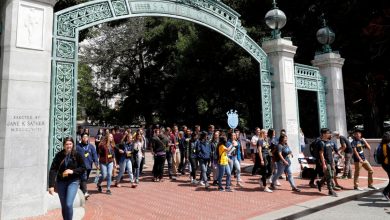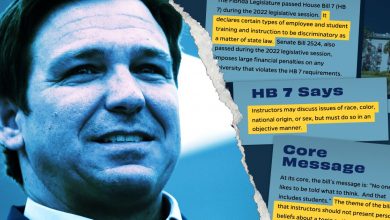Love (Well, Sex) in the Time of Covid

This article is excerpted from a new Chronicle special report, “Reimagining the Student Experience,” available in the Chronicle Store.
Ameya Okamoto will gladly admit that she returned to Tufts University’s campus in the fall of 2020 for a guy.
They had been hooking up her freshman year when Tufts shut down because of the pandemic. At the time, Okamoto says, her crush wasn’t ready for a relationship. But in August of her sophomore year, they started talking again, and soon they were both back on campus, and dating.
The reality on campus — Tufts reduced the density of its dorms and limited visitor access and group interactions — was quite different from the pre-pandemic days. Okamoto got in trouble for breaking Covid protocols after sneaking into her boyfriend’s dorm to sleep over. (They’ve since broken up.)
Friends got in trouble, too, for skirting Covid policy. At Tufts and other campuses, the pandemic raised the stakes for hooking up — students risked exposure to Covid and social shaming or official discipline. But the alternative — isolation — wasn’t great, either.
In her “version of the ‘great quitting,’” Okamoto, a visual artist, transferred to the School of the Art Institute of Chicago in 2021. She and other students say that the pandemic has made them more mindful about what they want out of sex and dating. Okamoto says she’s noticed more of her peers are in relationships now, and she is more inclined toward a relationship than a hookup situation.
If the pandemic led to more intentional conversations about sex and safety, the recent U.S. Supreme Court decision overturning Roe v. Wade is expected to lead to many more.
Part of the College Experience
The sex-and-dating scene may not be the first thing most students consider when picking a college, but it constitutes a significant part of the college experience for many. As Clark Kerr, the first chancellor of the University of California at Berkeley, remarked in a faculty meeting in 1957: “The chancellor’s job had come to be defined as providing parking for the faculty, sex for the students, and athletics for the alumni.”
The onset of the pandemic was a major disruption to students’ sex lives, as campuses closed and students returned home. Data confirms that moving home put students at a physical distance from their partners, and they had less partnered sex.
So far, most research on sex and relationships during the pandemic focuses on the early stages, so it is hard to quantify how the vaccine may have changed things. Anecdotally, students say they’re back to having sex like before. But, students and researchers note, they are trying to be more thoughtful about the decisions they make about sex — including how and with whom they have it.
When the pandemic set in, sex acquired a new level of risk, as close contact helped the coronavirus spread. Some chose to abstain. Others, sent home to Mom and Dad’s, didn’t have much choice.
In a study published in the Archives of Sexual Behavior, researchers collected data from undergraduates at Indiana University at Bloomington in January and February 2020, before the onset of the pandemic, and in April and May, following the closing of colleges around the country. In the first survey, 2.6 percent of respondents said they lived at home; in the second one, 71 percent said so.
Researchers found that participation in sex significantly decreased between the two phases, and that after the onset of the pandemic, sex took place more often between people in relationships. They also found that 14.5 percent of those who were in relationships broke up when their campuses closed.
In a Duke University survey conducted between the fall of 2020 and the spring of 2021, North Carolina undergraduates and graduate students reported an increase in their use of online platforms for dating and sex during the pandemic. Nearly two-thirds of respondents said they were less likely to have had multiple sex partners in the same month than they were before the pandemic, and 54 percent said they were less likely to have kissed a new partner for the first time.
Digital stalking after a sexual experience online or during a sexual experience online is a really big issue that we’ve had people come to us with.
While the pandemic may have reduced partnered sexual activity among college students early on, it certainly didn’t eliminate it. Lisa Wade, an associate professor of sociology at Tulane University, conducted 150 interviews with undergraduates at her institution during the 2021-22 academic year about their lives pre-vaccine. She found that students living in dorms had continued to hook up, but it was “more likely” that they were hooking up with people within their dorm.
Students living off campus had a different experience, Wade says. They largely used dating apps to meet sex partners and tried to limit their roster to other Tulane students. “They knew other Tulane students were also getting tested frequently,” Wade says. “That felt safer to them.”
Dating apps, which surged during the pandemic, have presented their own safety concerns. Claire Moberg, a rising senior at George Washington University and a co-president of the group GW Students Against Sexual Assault, says that the increased use of digital tools like dating apps, social media, pornography, and texting put students at a greater risk of unsafe situations online, including retaliation or sexual harassment.
“Our phones have a lot of power,” Moberg says. “Digital stalking after a sexual experience online or during a sexual experience online is a really big issue that we’ve had people come to us with.”
Paige Amormino, a graduate student at Georgetown University, notes that, Covid or not, meeting up with strangers through dating apps always carries risk. “I didn’t really think Covid added that much more of a risk to me personally,” she says.
Bacchanals Haven’t Happened
Debby Herbenick, a professor at Indiana University’s School of Public Health and the lead researcher on the study that compared students’ sexual behavior before and after the onset of the pandemic, says sex researchers are “absolutely seeing” partnered sexual behavior return to normal levels. “If we just look at sexual-behavior rates, it seems really pre-pandemic to me, in that lots of young people are having sex with partners,” Herbenick says.
But the campus bacchanals that some feared once students got vaccinated never really materialized. “I know that there was this concern … that all of a sudden all of these students who’ve been cooped up in their parents’ houses were all going to go spring-break crazy when they got back on campus,” says Jonathon Beckmeyer, an assistant professor in West Virginia University’s College of Applied Human Sciences and a researcher on the Indiana University study. “I don’t think that’s necessarily happened, either.”
In fact, data from the American College Health Association’s National College Health Assessment shows that the percentage of undergraduates who say they have never had vaginal intercourse actually rose during the pandemic — from 40.2 percent in the spring of 2020 to 41.7 percent that fall, to 43.9 percent in spring of 2021 to 49.2 percent that fall. The percentage of students who say they have never had oral sex follows a similar course.
Sarah Van Orman, a past president of the American College Health Association and the chief student health officer at the University of Southern California, says the findings follow a trend over the past decade of declining sexual activity among young people. The cause — Is it increased supervision? Porn? Social media? — is unclear.
Abortion Rights, a Growing Concern
It’s too early to tell how the recent U.S. Supreme Court decision — which overturned the landmark ruling establishing a constitutional right to abortion — will influence students’ choices about sex.
Women in their 20s accounted for the majority of abortions in 2019 — nearly 57 percent, according to data from the Centers for Disease Control and Prevention. Experts say colleges should expect to welcome more student-parents post-Roe, but many institutions aren’t prepared to support them. Students in states where abortion is or will soon be illegal are deleting their period-tracking apps in droves, out of concern their data could be subpoenaed by prosecutors. And women have been stocking up on abortion pills, emergency contraception, and birth-control pills in the event that contraceptive rights are also stripped.
Moberg, the George Washington student, says she and many of her peers were upset about the reversal. Abortion remains legal at all stages of pregnancy in Washington, D.C., where GW’s main campus is located, but she finds it “scary” that the right is no longer federally protected.
Moberg is from Ohio, which has banned abortion after six weeks of pregnancy. “There’s definitely an uncertain future for reproductive health care in Ohio,” she says. “It’s just really sad and something that we’re going to keep fighting for. It’s not over.”
Source link






